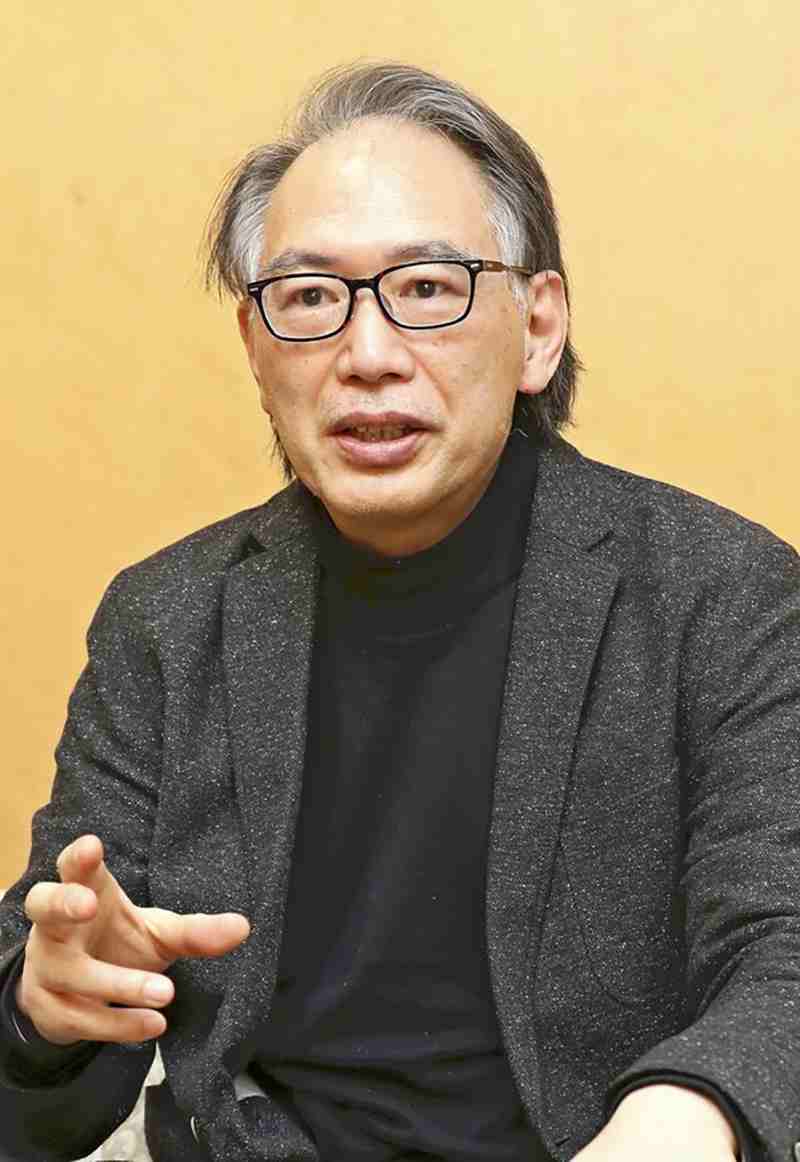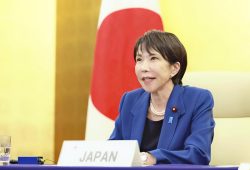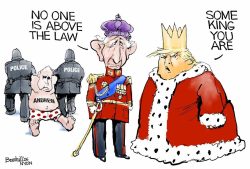
Ikuo Kameyama, President of Nagoya University of Foreign Studies
15:34 JST, February 28, 2022
What is behind Russia’s invasion of Ukraine? Prominent Russian literature scholar Ikuo Kameyama, the president of Nagoya University of Foreign Studies, who once interviewed former Soviet leader Mikhail Gorbachev in 2014, believes Russian President Vladimir Putin might still be smarting from events of that year. The following is excerpted from a recent Yomiuri Shimbun interview.
The first thing that came to mind when I heard about the invasion was the final day of the 2014 Sochi Olympics. I was attending the closing ceremony just like President Putin that day, when political turmoil occurred in Ukraine and the pro-Russian government collapsed. Then Ukrainian President [Viktor] Yanukovych was forced to flee Ukraine.
Putin must have felt humiliated by this, losing face at a time when Russia was on center stage, when he should have been showing the world that his nation was back. The latest invasion seems to reflect not only Russia’s identity as a nation, which is opposed to the eastward expansion of the North Atlantic Treaty Organization, but also his desire to recover personal pride that was hurt.
After the cause of Communism was lost due to the collapse of the Soviet Union, Putin used neo-Eurasianism [an ideology where Russia is neither Europe nor Asia but stands alone] as the basis of a new national identity. This position, which seeks to rebuild a civilizational sphere centered on Russia, concludes that Russia and Ukraine, which both belonged to the former Soviet Union, are inseparable “brotherly countries” and that Russia will never accept Ukraine’s membership in NATO.
I met former [Soviet] President Gorbachev in Moscow at the end of 2014 and asked him about the Ukrainian political upheaval and subsequent Russian occupation of Crimea in southern Ukraine. Surprisingly, Gorbachev said that the Crimean people had chosen Russia, so the legitimacy could not be completely denied.
Gorbachev also said, “I regret that we failed to make a written commitment about NATO’s eastward expansion.” Even this man, who contributed to the end of the Cold War by improving relations with the West, held such ideas.
Putin was convinced that the United States under the administration of [President Joe] Biden would not take a strong position toward the Ukraine issue, thinking that now was a once-in-a-lifetime opportunity to decisively block Ukraine’s approach to Europe. It’s a reckless gamble, but for Putin, the idea now appears to have grown to a false sense of a “messianic” mission.
Looking at Russia’s inherent logic, it can be said, “Russians never forget history, but don’t learn from it.” After the collapse of the Soviet Union, a wave of globalism based on Western-style freedom and democracy spread to Russia. From ancient times, however, Russia has believed that individual freedom can be maintained only when society as a whole is stable. Related to that idea, Dostoyevsky paradoxically stated something to the effect that “Our country has unlimited despotism, so there’s probably more freedom than anywhere else.”
Fearing that the loss of absolute power will lead to uncontrollable social disorder, Russians instinctively seek great power not only to counter globalism, but also to control themselves. This is why no one close to Putin objects to his extraordinary decision.
The current mentality of Putin may be like this: In order to overcome the identity crisis of the collapse of the Soviet Union, we must assert our values to the West, repel the pressure, and defend our territory. A leader who has resorted to crazy decisions seems to be obsessed with the fear of losing Ukraine, and he may think that it would lead to the collapse of Russian identity and his political base.
From the Russian point of view, this invasion is like an attack on oneself. No ordinary Russian citizen who had a share of the harrowing experiences of World War II welcomes the invasion. Though Putin said the goal was to save compatriots in Ukraine, there has been no enthusiasm in Russian society. But though a war no one wants is being fought under the orders of the president, the groundswell of opposition has not grown.
Russian people have an apocalyptic desire in their psyche that the eternal “Kingdom of God” will appear at the end of history. This idea has fostered indifference to the political status quo. Thus, even after Western European democracy was introduced in which independent individuals form a civil society, a feeling of opposition was aroused, and the situation returned to the old days when people were subjugated to authority. Russian writer [Vasily] Grossman called such a national character “a thousand years of slavery.”
Since the current situation is directly related to Russia’s view of the world, it is difficult for the outside world to approach Russia to resolve matters. It is my sincere hope that Russia will break away from old, outdated ideas and show an attitude of reconciliation toward Ukraine and the world.
— This interview was conducted by Yomiuri Shimbun Staff Writer Ryoichi Matsumoto.
Profile: Ikuo Kameyama
Born in 1949, Kameyama has served as the president of Tokyo University of Foreign Studies, among other posts, and specializes in Russian literature and culture. He has translated Dostoyevsky’s novels “The Brothers Karamazov” and “Crime and Punishment” into Japanese.
Top Articles in World
-

Israeli Ambassador to Japan Speaks about Japan’s Role in the Reconstruction of Gaza
-

Videos Plagiarized, Reposted with False Subtitles Claiming ‘Ryukyu Belongs to China’; Anti-China False Information Also Posted in Japan
-

North Korea Possibly Launches Ballistic Missile
-

Chinese Embassy in Japan Reiterates Call for Chinese People to Refrain from Traveling to Japan; Call Comes in Wake of ¥400 Mil. Robbery
-

Pentagon Foresees ‘More Limited’ Role in Deterring North Korea
JN ACCESS RANKING
-

Japan PM Takaichi’s Cabinet Resigns en Masse
-

Japan Institute to Use Domestic Commercial Optical Lattice Clock to Set Japan Standard Time
-

Israeli Ambassador to Japan Speaks about Japan’s Role in the Reconstruction of Gaza
-

Man Infected with Measles Reportedly Dined at Restaurant in Tokyo Station
-

Man Infected with Measles May Have Come in Contact with Many People in Tokyo, Went to Store, Restaurant Around When Symptoms Emerged





















